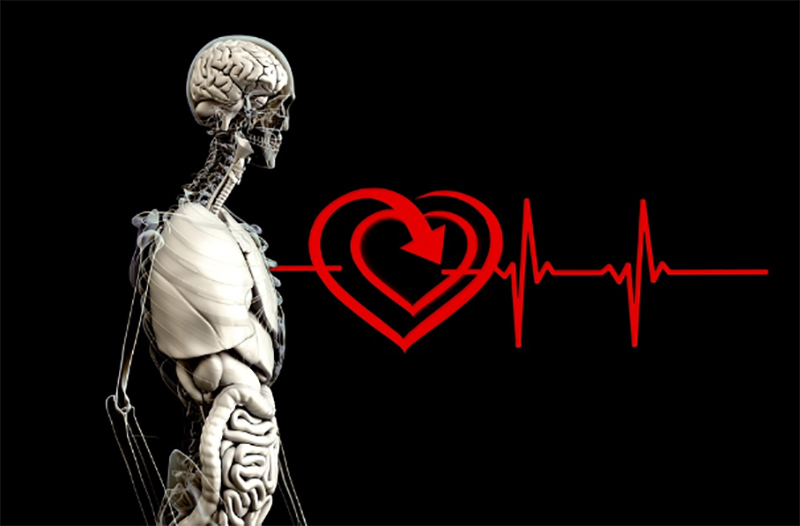 Cardiovascular Risk
Cardiovascular Risk
Hormone Therapy for gender dysphoria may raise Cardiovascular risks, finds study
Washington: People with gender dysphoria taking hormone replacements as part of gender affirmation therapy face a substantially increased risk of serious cardiac events, including stroke, heart attack and pulmonary embolism, according to a study presented at the American College of Cardiology's Annual Scientific Session Together With the World Congress of Cardiology.
Gender dysphoria occurs when a person's gender identity conflicts with the sex they were assigned at birth. Gender affirmation therapy, part of a process known as transitioning, includes a variety of medical, psychological and behavioral interventions to help individuals, many of whom identify as transgender, acquire secondary sex characteristics that align with their gender identity. Recent data suggest about 1 million to 1.6 million people identify as transgender in the U.S. and that hormone therapy use is rising rapidly, especially among teens and young adults.
The current study is the largest to date examining the cardiovascular risks of gender affirmation therapy in this historically understudied population. Previous research on hormone-modulating medications has primarily focused on younger women using hormone-based birth control or on older women following a hysterectomy or during menopause. In these populations, long-term hormone replacement therapy has been associated with an increased risk of breast cancer, stroke and blood clots.
Researchers retrospectively examined rates of cardiovascular events in over 21,000 people with gender dysphoria from a national database of hospital records, of whom 1,675 had used hormone replacement therapy. Typically, people assigned male at birth receive estrogen and people assigned female at birth receive testosterone. Overall results found hormone replacements were associated with higher rates of cardiac events, mostly related to dangerous blood clots, but were not associated with higher rates of death.
"It's all about risks and benefits. Starting transitioning is a big part of a person's life and helping them feel more themselves, but hormone replacement therapy also has a lot of side effects—it's not a risk-free endeavor," said Ibrahim Ahmed, MD, a third-year resident at Mercy Catholic Medical Center in Darby, Pennsylvania and the study's lead author.
In the study, people with gender dysphoria who had ever used hormone replacements saw nearly seven times the risk of ischemic stroke (a blockage in a vessel supplying blood to the brain), nearly six times the risk of ST elevation myocardial infarction (the most serious type of heart attack) and nearly five times the risk of pulmonary embolism (a blockage in an artery in the lung), compared with people with gender dysphoria who had never used hormone replacements. Hormone replacement therapy was not associated with any increase in deaths from any cause or with increased rates of atrial fibrillation, diabetes, hypertension, hemorrhagic stroke or heart failure.
Both estrogen and testosterone are known to increase the clotting activity of blood, which could explain the increase in clotting-related cardiovascular events, researchers said. Those taking hormone replacement therapy also had higher rates of substance use disorder and hypothyroidism.
"Looking at a person's medical and family history should definitely be part of the screening protocol before they even start hormone replacement therapy," Ahmed said. "It is also important that people considering this therapy are made aware of all the risks."
One limitation of the study is that it only accounted for whether individuals had ever used any type of hormone replacement therapy. To better inform clinical decisions, researchers said it would be helpful to assess whether the duration of treatment, the age at which it is initiated or the type of hormone therapy used affects the risks.
"I'm curious to see if the method of administration alters the outcomes," Ahmed said. "Is one way of giving hormone replacement therapy better or associated with a lower risk of cardiovascular outcomes? If so, then that should be the focus for how we give these patients their hormone replacement therapy going forward."
In addition to considering ways to mitigate potential cardiovascular risks before starting hormone replacement therapy for individual patients, researchers said it will be important to continue to study potential long-term cardiovascular and other health effects of gender affirmation therapies as the use of these therapies become more common.
Support Our Journalism
We cannot do without you.. your contribution supports unbiased journalism
IBNS is not driven by any ism- not wokeism, not racism, not skewed secularism, not hyper right-wing or left liberal ideals, nor by any hardline religious beliefs or hyper nationalism. We want to serve you good old objective news, as they are. We do not judge or preach. We let people decide for themselves. We only try to present factual and well-sourced news.







